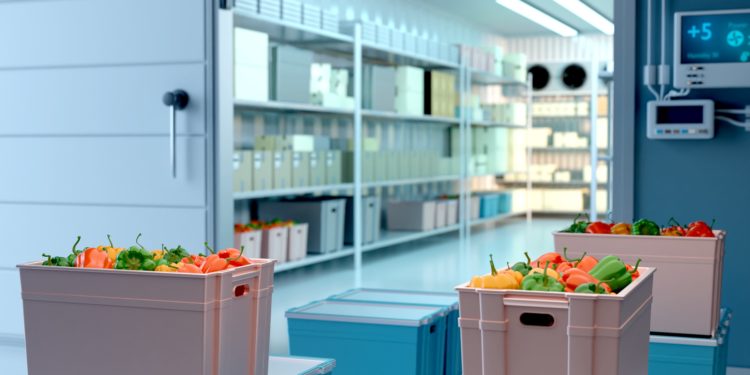Cold rooms are indispensable assets in the food industry, serving as vital components in the preservation and storage of perishable goods. These specialized environments play a crucial role in maintaining freshness, ensuring food safety, and extending shelf life for a wide range of products.
Preserving Freshness and Quality
Maintaining Precise Temperature Control: Cold rooms are meticulously designed to uphold specific temperature ranges essential for different types of perishable foods. Refrigerated sections typically maintain temperatures between 0°C to 5°C, while frozen storage areas remain below -18°C. These controlled conditions effectively slow down microbial growth, enzymatic reactions, and deterioration processes, thereby preserving the nutritional value, flavor, and texture of fruits, vegetables, meats, dairy products, and more. For optimal performance and efficiency, professional cold room installation is crucial to ensure these precise temperature controls are maintained consistently.
Extending Shelf Life and Reducing Waste
Significantly Prolonging Product Longevity: By mitigating temperature fluctuations and providing consistent cooling, cold rooms significantly extend the shelf life of perishable goods. This capability is crucial for businesses looking to minimize food waste, reduce operational costs associated with spoilage, and maintain a continuous supply of fresh products for consumers. Properly stored items retain their quality and remain safe for consumption over extended periods, aligning with sustainability goals by reducing the environmental impact of discarded food.
Ensuring Stringent Food Safety Standards
Meeting Regulatory Requirements: Cold rooms are instrumental in complying with stringent food safety standards such as HACCP (Hazard Analysis and Critical Control Points). These regulations mandate that food products are stored at appropriate temperatures to prevent bacterial growth and contamination risks. The controlled environment of cold rooms helps businesses uphold these standards, ensuring that foods maintain their integrity from production through distribution and retail.
Facilitating Efficient Inventory Management
Enhancing Organizational Efficiency: Cold rooms offer spacious, organized storage solutions that facilitate efficient inventory management. Adjustable shelving systems and compartmentalized layouts enable businesses to categorize products by type, expiration date, and usage frequency. This organization supports streamlined stock rotation practices, minimizes inventory losses, and optimizes operational workflows in food processing facilities, supermarkets, restaurants, and catering operations.
Energy Efficiency and Sustainability
Promoting Sustainable Practices: Modern cold room technologies prioritize energy efficiency and sustainability. Insulated panel constructions, advanced refrigeration systems, and automated temperature controls contribute to reduced energy consumption and operational costs. By minimizing carbon footprints and resource usage, businesses can achieve sustainability targets while enhancing their overall operational efficiency.
Maintenance and Monitoring Practices
Ensuring Reliability and Performance: Regular maintenance and monitoring are essential for the optimal functioning of cold rooms. Scheduled inspections, temperature monitoring, and proactive repairs of refrigeration equipment help prevent downtime and maintain consistent storage conditions. These practices ensure that cold rooms continue to meet operational demands, uphold food safety protocols, and safeguard product quality throughout their lifecycle.
Conclusion
Cold rooms are indispensable assets in the food industry, playing a critical role in preserving freshness, ensuring food safety, and extending shelf life for perishable goods. These controlled environments enable businesses to maintain high-quality standards, minimize food waste, and meet consumer expectations for fresh and safe products. By investing in advanced cold room technologies and adhering to best practices in storage and maintenance, food businesses can optimize operational efficiency and sustainably manage their inventory while delivering superior quality to the market..


![7 Best POS Software in the UK [2026 Edition]](https://todaynews.co.uk/wp-content/uploads/2026/02/7-Best-POS-Software-in-the-UK-2026-Edition-360x180.png)









































































